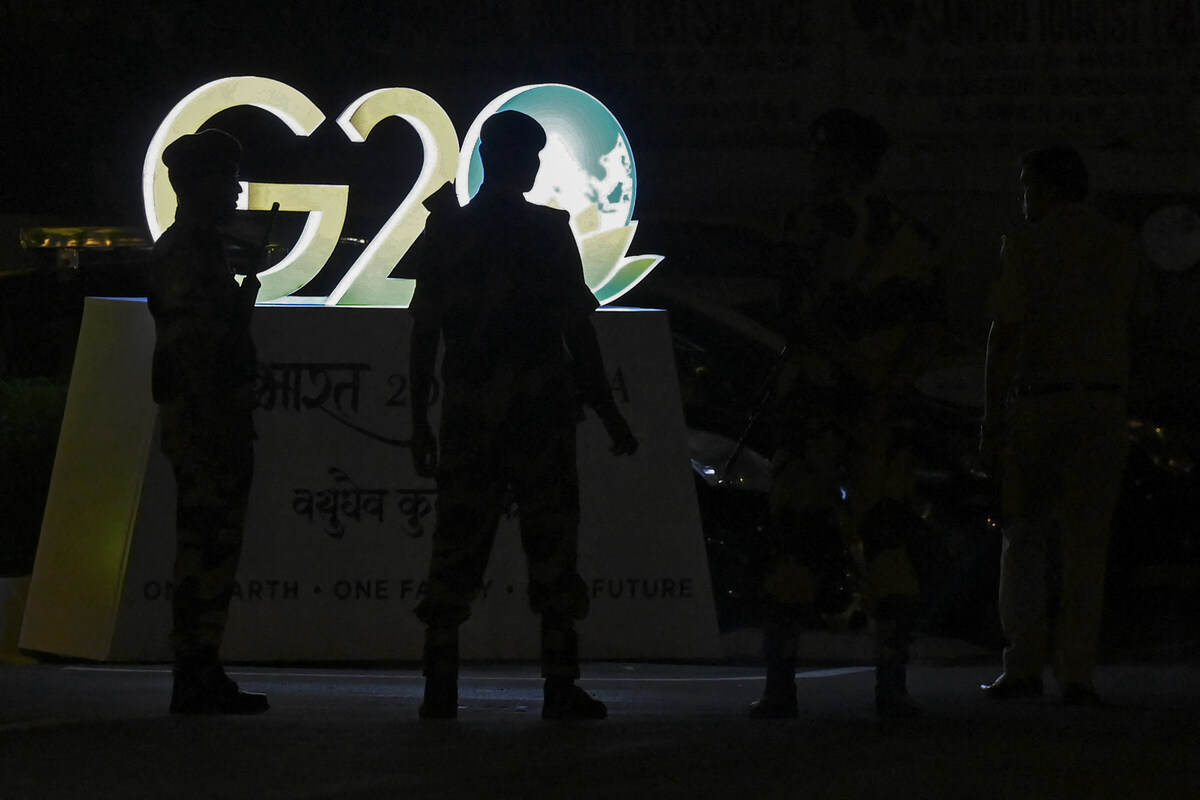Nairobi, Kenya — Statements by G20 ministers ahead of a key summit are “woefully inadequate” about addressing the climate emergency, the UN’s climate change chief told AFP in an interview Wednesday, calling for stronger action from the nations responsible for most planet-heating pollution.
The G20, which accounts for about 85 percent of the world’s economy and greenhouse gas emissions, will meet in New Delhi in the absence of China and Russia’s leaders, as the invasion of Ukraine, trade and the future of fossil fuels stir tensions.
Simon Stiell, the head of the United Nations Framework Convention on Climate Change, said technological solutions are within reach to curb the warming that is already unleashing devastating impacts across the globe.
But he told AFP in an interview that geopolitics is the “constraining factor”, speaking on the sidelines of the Africa Climate Summit in Nairobi, where leaders have called for a huge increase in renewables investment, global financial reforms and greater support for vulnerable countries.
The G20 summit is the next major set of negotiations in a packed calendar of meetings crucial for action on global warming, culminating at the UN COP28 talks in the oil-rich United Arab Emirates starting in November.
Expectations for the world’s richest countries to make progress at the two-day G20 meeting have been blunted by the high-profile absence of China’s Xi Jinping, as well as Russia’s Vladimir Putin.
Stiell said statements from the bloc in the lead-up to the summit have fallen far short of what is needed on climate.
“The communiques that have come out are woefully inadequate, they do not speak to the critical issues that need to be addressed by those 20 countries,” he told AFP.
“There is still evasion and obfuscation around those key issues.”
A G20 energy ministers’ meeting in July failed to agree on a roadmap to phase down fossil fuels, or back the scientific consensus that emissions must peak by 2025.
‘Send a strong signal’
The G20 meeting will take place as countries are expected to receive their first formal scorecard on progress on the climate goals they agreed to in Paris in 2015.
Under the Paris deal, almost 200 nations committed to limiting global warming to “well below” two degrees Celsius since pre-industrial times, preferably 1.5C.
The so-called Global Stocktake will likely reiterate the dire conclusions from a series of blockbuster UN climate science reports highlighting the world’s inadequate response so far.
“There’s work to be done across the board,” said Stiell, but he added, “the burden of response sits with 20 countries”.
He urged G20 leaders to reflect on their failures and “send a very strong signal as to their commitment to addressing climate change.”
Earlier this week, IEA chief Fatih Birol urged the US and China to set aside their differences and align on climate change, telling AFP that “geopolitical fractures” risked holding back the clean energy transition.
In response, US climate envoy John Kerry said he hoped Washington and Beijing “could come together” in the fight against global warming, although he stressed that cooperation would not be “at any price”.
UN climate science experts have said emissions need to be slashed by 43 percent this decade and Stiell said the technology to achieve that goal was within reach — if wealthier countries step up.
That means meeting a long-overdue vow to provide $100 billion-a-year in climate finance by 2020, as well as helping the most vulnerable countries least responsible for global warming deal with its impact.
The growing chorus of demands from developing nations to reform the World Bank and International Monetary Fund to meet the challenges of climate change may take place outside the UN climate talks, but they are also central to negotiations.
“Finance is everything,” Stiell said.








